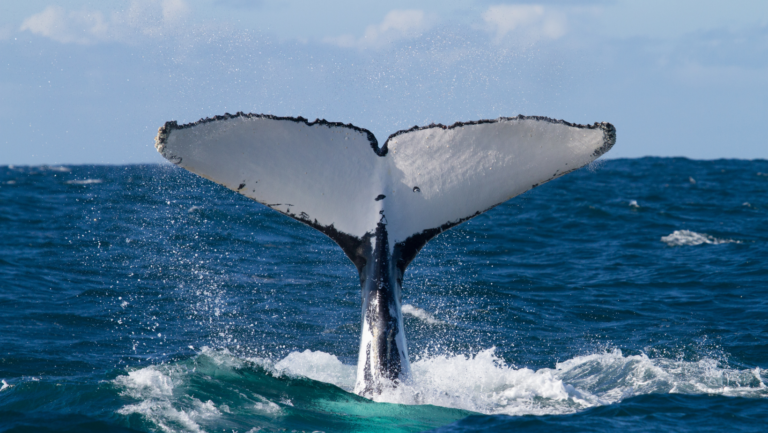
Humpback Whales in the southwestern Indian Ocean undertake annual migrations in summer from the Antarctic/Southern Ocean feeding grounds into winter breeding grounds in the tropical and sub-tropical coastal waters of Mozambique, classified as the C1 Breeding Stocks.
Humpback Whales are considered to possess one of the most complex acoustic repertoires among Baleen whales, as male humpback whales are known to produce complex songs during the breeding season. Specifically, the C1 breeding stock found in the Bazaruto Archipelago has never been acoustically researched before.Today, Humpback whales are listed as least concern by the IUCN as their population is increasing, with about 84,000 mature adults. Nevertheless, they are still facing many threats: entanglement by fishing gear, vessel collisions, human-caused noise and traffic disturbance, coastal habitat destruction, and climate change. Specifically, the Bazaruto archipelago is a developing area, where a growing whale-watching industry exists, alongside fishing activities. Moreover, the Bazaruto archipelago was previously a candidate for gas drilling.
The Problem
Smart regulations that include the use of bioacoustics for their determination still lack, as the national protocol of Cetaceans monitoring does not include any acoustic study recommendations.
The Solution
To account for the lack of accessible up-to date data, Deep Voice and the BCSS embarked on three mutual collaborative expedition. Using the BCSS expertise and experience, Deep Voice has learned much about the local humpback whale population in the Bazaruto archipelago area and recorded many hours of the local humpback song. In order to analyze these recordings efficiently, Deep Voice developed its AI-based detection algorithm on the local C1 humpback whales’ population vocalizations. Upon analysis of the data, Deep Voice and the BCSS plan to suggest acoustic-based recommendations for the local authorities to promise the long-term safety of the C1 population in the area.
Impact
Using Deep Voice acoustics expertise, hours of whale songs and calls were recorded as a baseline for future research and impact. Moreover, Deep Voice shared their knowledge with the BCSS on many different aspects: best practices of hydrophone recordings, technical and practical aspects of bioacoustics, audio analyze on Raven, the concept of sound-based AI algorithm, etc. From a practical perspective, this will enable the BCSS to conduct acoustics surveys for local conservation efforts independently in the future. In the near future, the organization plans to co-launch acoustics-based recommendations for the local authorities.
